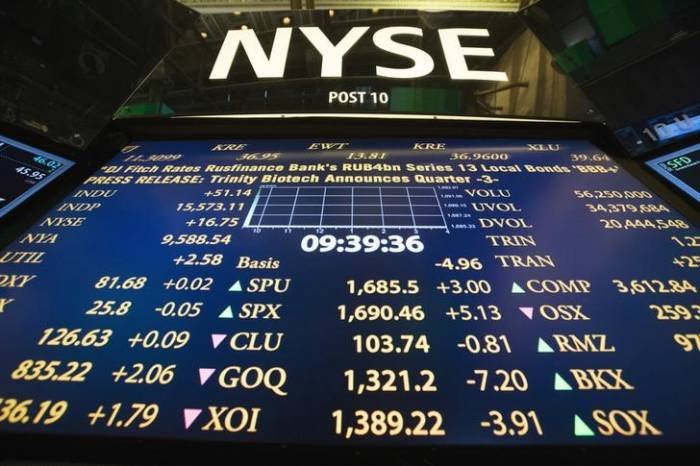
There were no common dynamics on the Asia-Pacific stock exchanges that are the same for all. On Friday, market participants reacted differently to incoming news about the reduction in the value of the shares of American colleagues, as well as the very limited growth opportunities of the US economy.
However, most analysts note that a slight decline in the stock markets is justified and will not last long. This is only a short respite before the next rapid transition to a higher level.
All losses that occurred earlier this year have already been successfully returned and some even increased. The main engine on the market so far is hopes for an early release of a vaccine against coronavirus infection, which, however, cannot be considered too strong a support. Analysts point to the fact that growth is still extremely rapid and unjustified in the face of a relatively vague future economic expansion against the backdrop of the ongoing COVID-19 pandemic.
The positive ended with the release of a new batch of statistics on unemployment in the United States of America. So, yesterday it became known that there were 10 thousand more applications for unemployment benefits. In total, they turned out to be at the level of 1,300 million units. Preliminary data were much more optimistic with an expectation to decrease to approximately 1,240 million units. Unjustified expectations again undermined the good mood of investors, but not enough to fall into deep gloom.
Chinese statistics, also released on Thursday, showed an extremely uneven and restrained pace of economic recovery after the COVID-19 pandemic crisis. The country's GDP growth slowed down only rising at about 3.2% for the second quarter of this year. However, the good thing is that after the recession, growth has begun. The level of industrial production in the first month of summer grew by 4.8%, and only 4.4% in May. But retail sales in June recorded a decline that no one expected amounting to 1.8% in annual terms. Earlier, there was also a fall of 2.8%, which was explained by a deep crisis.
In addition to statistics, market participants pay close attention to the conflict between the USA and China. The United States intends to ban the entry into the country of those officials and their families who are involved in the ratification of the Hong Kong National Security Act. At the same time, the list of persona non grata is constantly replenished, and now military men from the People's Liberation Army of the PRC get into it. Moreover, already issued American visas are likely to be annulled. In this situation, China, of course, will not be silent, and in the near future, we should expect retaliatory measures, which will be the next step in progressing the situation.
However, information has already appeared that Beijing does not intend to completely break off relations with Washington and will continue to comply with the terms of the trade agreement concluded between the states earlier.
The Shanghai Composite China index fell 0.5% against this mixed background. Hong Kong Hang Seng Index did not support the trend and showed an increase of 0.4%.
Japan's Nikkei 225 Index dipped 0.5%.
The South Korean Kospi Index, on the contrary, increased its position by 0.6%.
The Australian index fell slightly by 0.1%.
The American stock market, on the other hand, unanimously went down. Own statistics and data from China put pressure here too. It is especially sad that the Dow Jones index was forced to stop its rapid growth, which has been going on for four consecutive trading sessions.
The Dow Jones Industrial Average index fell by 0.5% or 135.39 points, which forced it to go to the mark of 26 734.71 points.
The Standard & Poor's 500 index fell from 0.34% or 10.99 points. Its current level is in the range of 3,215.57 points.
The Nasdaq Composite Index declined the most with 0.73% or 76.66 points, which sent it to the area of 10,473.83 points.
Europe stocks also underwent a negative trend falling in almost all directions. Market participants closely monitor the financial statements of companies and the course of the EU summit. Most of all, investors are worried about the adoption of the next budget of the region for a period of seven years, since it will determine the pace and level of economic recovery from the crisis.
The overall index of the largest enterprises in the European region, Stoxx Europe 600, dipped slightly by 0.2% and is now at around 371.34 points.
The UK FTSE 100 index fell 0.27%. The French CAC 40 index fell even further by 0.6%. The Italian FTSE MIB index went down by only 0.09%. The Spain index showed the deepest drop of 0.87%. The German index, on the contrary, went up by 0.07%.
 English
English 
 Русский
Русский Bahasa Indonesia
Bahasa Indonesia Bahasa Malay
Bahasa Malay ไทย
ไทย Español
Español Deutsch
Deutsch Български
Български Français
Français Tiếng Việt
Tiếng Việt 中文
中文 বাংলা
বাংলা हिन्दी
हिन्दी Čeština
Čeština Українська
Українська Română
Română

